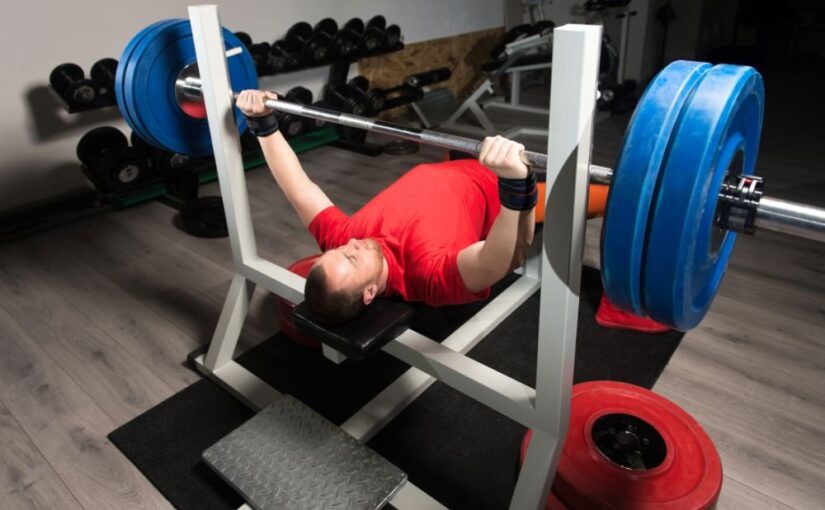The bench press is one of the most recognized exercises in strength training and bodybuilding. Often regarded as a benchmark for upper body strength, many lifters and athletes consider it a key indicator of overall fitness. But is the bench press truly a good measure of strength? Let’s explore its merits, limitations, and what it really tells us about an individual’s strength.
Understanding the Bench Press
The bench press primarily targets the chest (pectoralis major), shoulders (deltoids), and triceps. By lying on a bench and pushing a weighted barbell upward, this compound movement engages multiple muscle groups, making it an effective exercise for building upper body strength.
Benefits of the Bench Press
- Strength Development: The bench press is highly effective for developing upper body strength.
- Hypertrophy: It promotes muscle growth in the chest, shoulders, and arms, contributing to an aesthetically pleasing physique.
- Power Generation: As a compound movement, it can enhance overall power output when performed with explosive techniques.
Bench Press as a Strength Measure
Pros
- Standardized Lift: The bench press is a common exercise in powerlifting competitions, allowing for standardized comparisons of strength among lifters.
- Widely Recognized: Its popularity in gyms and fitness culture means that many people use it as a benchmark for their upper body strength.
- Neuromuscular Activation: A strong bench press often correlates with a well-developed neuromuscular system, indicating good muscle coordination and activation.
Cons
- Upper Body Focus: The bench press primarily assesses upper body strength, which may not represent overall strength or functional fitness.
- Muscle Imbalances: Relying solely on the bench press can lead to imbalances, particularly if lifters neglect other important exercises that target the back and lower body.
- Technique Sensitivity: Performance can vary significantly based on technique, grip width, and body position, which may not accurately reflect pure strength levels.
Bench Press Variations
To get a broader assessment of upper body strength, consider incorporating various bench press variations. Exercises like the incline bench press target the upper chest, while the decline bench press focuses on the lower chest. Dumbbell bench presses allow for greater range of motion and can help in muscle activation.
Proper Bench Press Technique
Performing the bench press with the correct technique is crucial for maximizing benefits and minimizing injury risk. Key points to remember include:
- Grip Width: A wider grip targets the chest more, while a narrower grip emphasizes the triceps.
- Foot Placement: Keep your feet flat on the ground for stability.
- Back Positioning: Maintain a slight arch in your back, keeping your shoulder blades retracted.
- Breathing: Inhale before lowering the bar and exhale while pushing it upward.
Common Bench Press Mistakes
Even seasoned lifters can fall into common traps. Here are a few mistakes to avoid:
- Bouncing the Bar: Allowing the bar to bounce off your chest can lead to injury.
- Lifting Hips: Keeping your hips down ensures proper form and avoids strain on your lower back.
- Neglecting Warm-Up: Always warm up to prepare your muscles and joints for heavier lifts.
How to Improve Your Bench Press
If you’re looking to increase your bench press strength, consider these strategies:
- Progressive Overload: Gradually increase the weight you lift to continue making gains.
- Accessory Exercises: Incorporate tricep dips, push-ups, and shoulder presses to strengthen supporting muscles.
- Form Checks: Regularly review your technique or work with a coach to ensure proper form.
Bench Press in Different Sports
The bench press plays a unique role in various sports. In football, for example, it helps develop explosive upper body strength, which is crucial for blocking and tackling. Bodybuilders use it as part of their regimen to sculpt their upper body, while powerlifters focus on maximizing their one-rep max.
The Role of Nutrition in Strength Training
Nutrition is vital in supporting strength gains. Consuming adequate protein (1.2 to 2.0 grams per kilogram of body weight) helps in muscle repair and growth. Balanced meals rich in vitamins and minerals also play a role in recovery and performance.
Psychological Aspects of Strength Training
Mental factors are equally important in strength training. Setting realistic goals, staying motivated, and overcoming mental barriers can significantly influence your performance. Visualization techniques and positive affirmations can boost confidence during heavy lifts.
Personal Stories or Testimonials
Many athletes have stories of how the bench press has shaped their strength training journey. For instance, a competitive powerlifter might share how consistent bench pressing helped him break personal records, while a bodybuilder might discuss how it played a crucial role in achieving a balanced upper body physique.
Conclusion
While the bench press is a valuable exercise for assessing upper body strength and developing muscle, it should not be the sole measure of an individual’s overall strength. It’s essential to consider its limitations and to incorporate a variety of exercises for a more holistic evaluation of strength.
For those aiming to gauge their strength accurately, integrating multiple lifts—such as squats, deadlifts, and pulling exercises—will provide a clearer picture of overall fitness. Ultimately, the best approach to strength training involves a well-rounded program that includes diverse movements to ensure balanced development and functional capability. Stay consistent, and you’ll see impressive results!

